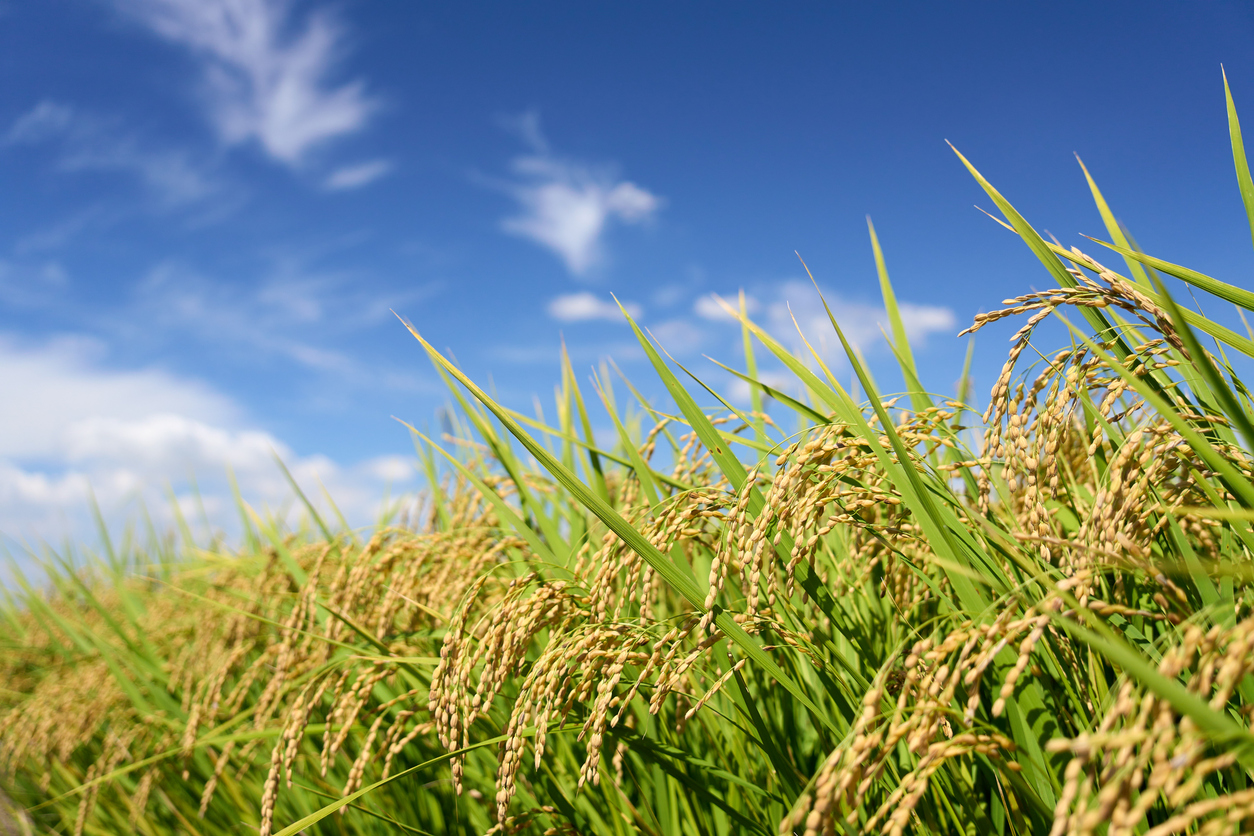
Study Pinpoints Rice Gene Vital in Salt Tolerance and Growth Vigor
July 2, 2025| |
Researchers at Nanchang University in China found a rice gene involved in physiological and molecular responses to salt stress. Their findings, which are vital in the development of salt-resilient rice varieties, are presented in a preprint article at SSRN.
Soil salinization harms rice production worldwide, highlighting the need to pinpoint the genetic components of salt tolerance. Glycine- and proline-rich proteins (GPRPs) have remained unchanged throughout the evolutionary history of different plant species, but their role in crop salinity responses remains unclear. This led the researchers to use CRISPR-Cas9 to disrupt the GPRP gene (OsGPRP3), which was previously associated with grain development, salt tolerance, and growth vigor in rice.
Results showed that the OsGPRP3 knockout lines had increased salt sensitivity and reduced germination and seedling survival rates compared to the wild-type ZH11. During the reproductive stage and under salt stress, the gene-edited plants exhibited a significant decrease (24.8%) in grain yield, which was only 9.1% in the wild-type. Furthermore, assay results indicated impaired oxidative and osmotic homeostasis.
Based on the findings, OsGPRP3 plays a critical role in coordinating physiological and molecular responses to salt stress in rice. The results provide the first functional evidence of a GPRP family member involved in multi-stage salinity adaptation in crops.
Download the paper from SSRN.
| |
You might also like:
- Experts Discover and Start to Crack the Epigenetic Code
- Pocket K No. 31: Biotechnology with Salinity for Coping in Problem Soils
- Scientists Discover How Plants Grow Away from Salt
Biotech Updates is a weekly newsletter of ISAAA, a not-for-profit organization. It is distributed for free to over 22,000 subscribers worldwide to inform them about the key developments in biosciences, especially in biotechnology. Your support will help us in our mission to feed the world with knowledge. You can help by donating as little as $10.
-
See more articles:
-
Plant
- EFSA GMO Panel Releases Scientific Opinion on GM Maize MON 87427
- Study Pinpoints Rice Gene Vital in Salt Tolerance and Growth Vigor
- US FDA Completes Review of Altered Lignin Alfalfa Developed by Cibus and S&W Seed
- Korean Researchers Introduce Web Tool to Boost Accuracy of CRISPR
-
Food
- Researchers Explore Public Opinion on GMOs in Taiwan
- Clemson University Research Team Discover Genes that Could Help Peanuts Beat the Heat
- ISAAA Opens Registration for the 8th Asian Short Course on Agribiotechnology, Biosafety Regulation, and Communication (ASCA8)
-
Environment
- Scientists Turn Plastic Waste into Vanilla Flavoring Using Engineered Bacteria
-
Read the latest: - Biotech Updates (February 18, 2026)
- Gene Editing Supplement (January 28, 2026)
- Gene Drive Supplement (February 22, 2023)
-
Subscribe to BU: - Share
- Tweet

